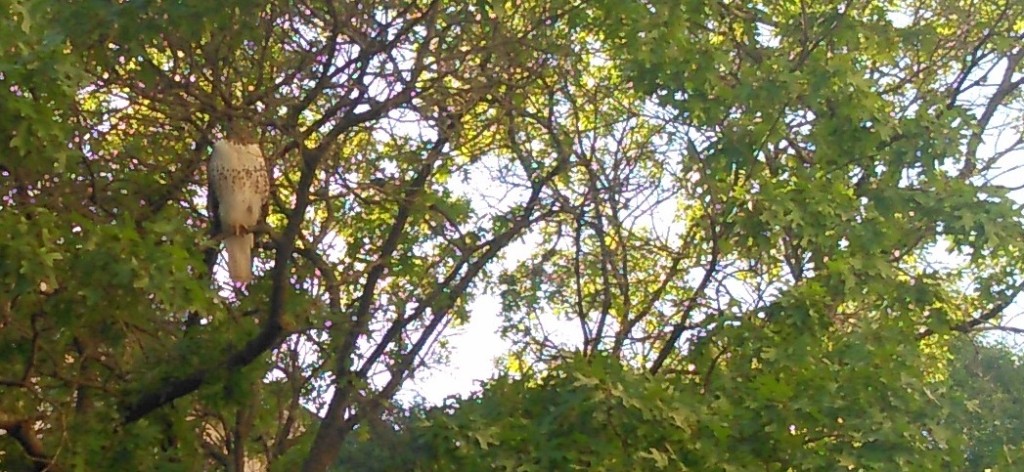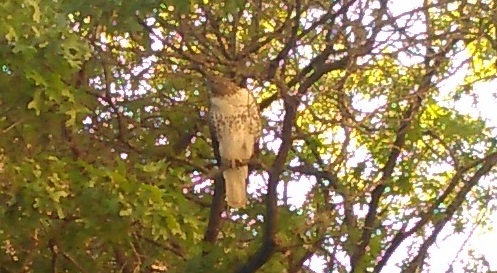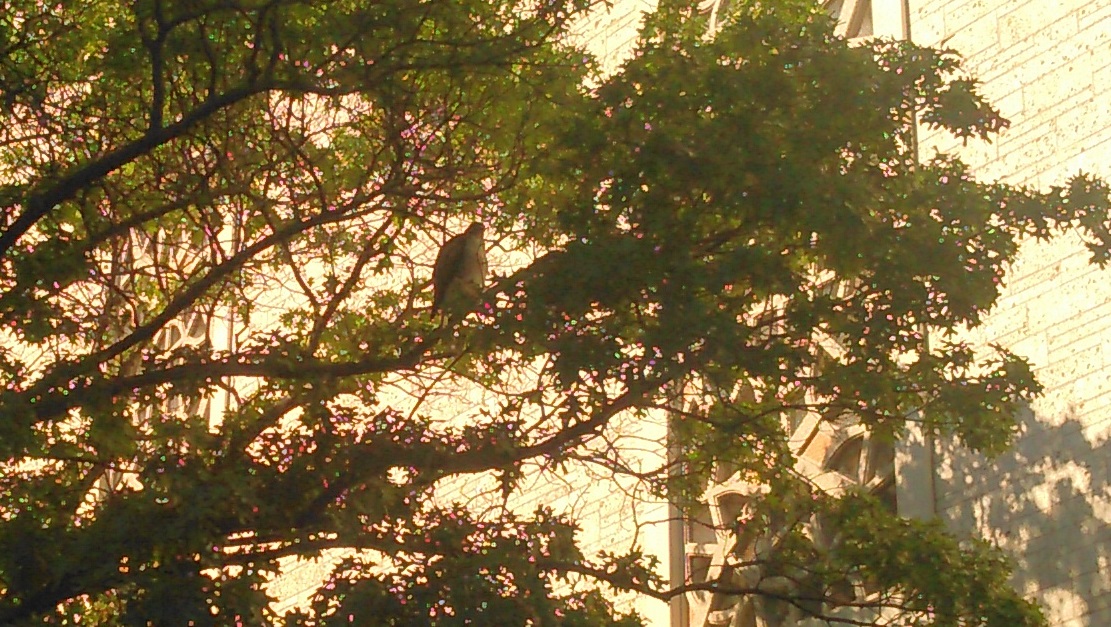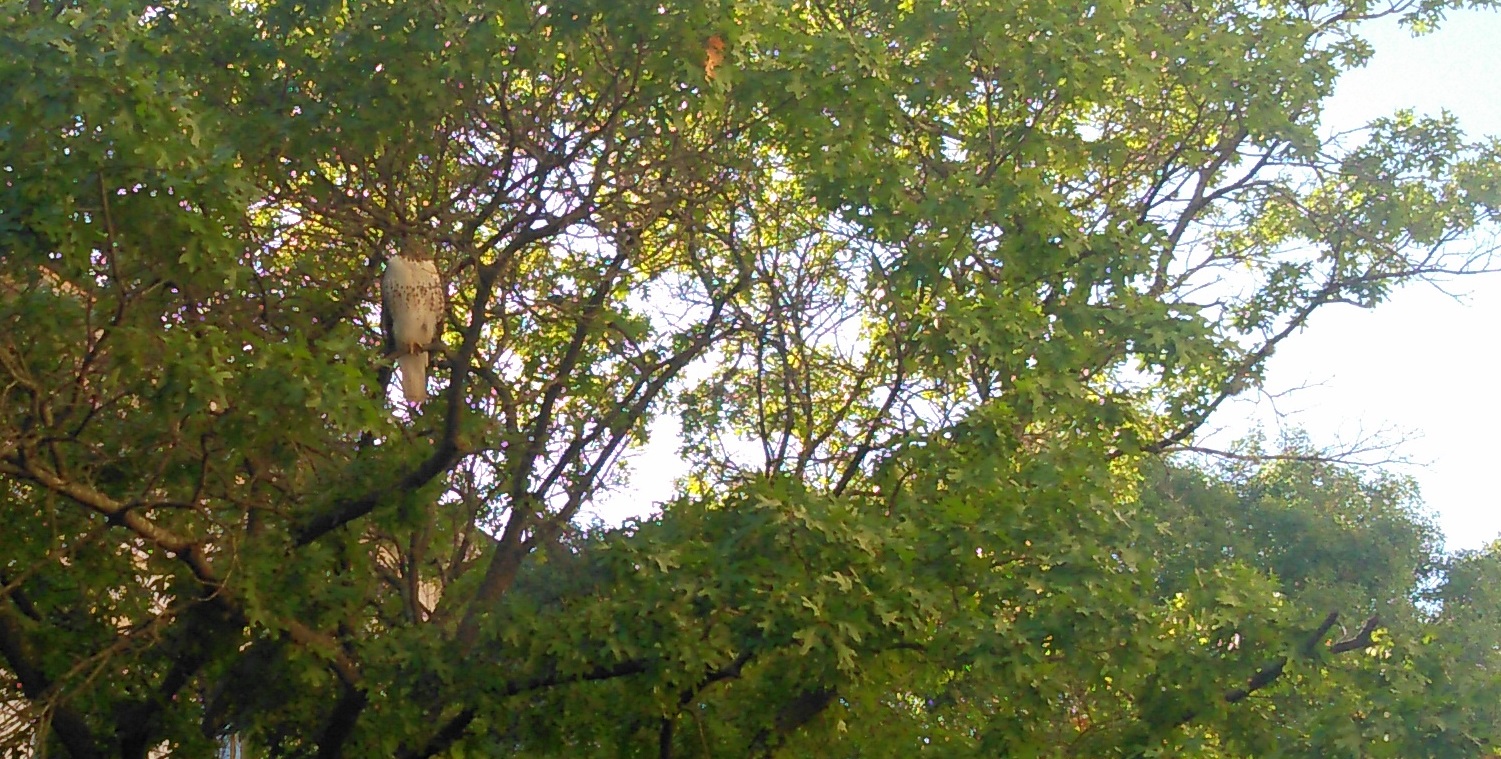
From an interview with Sanford Levinson, Professor at the University of Texas School of Law, promoting his new book about reading the Federalist Papers:
The central problem, I am convinced, is that most Americans—and I’m tempted to say especially those who consider themselves “liberals,†“progressives,†of “leftistsâ€â€”are scared to death of their fellow citizens and most certainly do not believe they have the capacity to engage in intelligent discussion of our constitutional order. That may be true, of course, but if it is, democracy—and not merely the prospects for a new convention—is doomed.
And from Richard Beck’s Experimental Theology blog, some interesting thoughts on the Benedict Option and implications of its application:
If you ask my friend and colleague David McAnulty about the biggest obstacle facing American Christianity his answer might surprise you.
According to David, this is the church’s biggest obstacle:
Youth sports.
I think David has a point…. Families just don’t have time for church anymore.

As a freshman at the University of Texas at Austin in the fall of 1999, I acquired and have since retained a chip on my shoulder: that I will forever be an under-read individual. It’s silly how often I’ve imagined myself: as a Texan I’m less read than most Americans from other states; as an American I’m less literary compared to most Europeans. It’s all very neurotic—as if I could somehow read a bunch of books, “play catch up,†and become a better writer. Ha!
Made As and Bs in middle and high school, but when I got accepted to Longhorn Land––an acceptance probably based on socio-economic grounds, for I was neither in the top ten percent of my class nor an ethnic minority––I was soon stung by the realization of my lack of acquired mental rigor. ‘Twas only later that I learned that, although I was homeschooled for third and fourth grades, such a feeling of the absence of knowledge is a common part of being a product of the Texas public education system.
Though an arbitrary measurement (because page count varies wildly), these days I read about a hundred books a year (87 in 2015), take notes, and try to continually study them. But this chip on my shoulder––this thorn in my side––refuses to leave. Moreover, whenever I discuss something I’ve read, I tend to over-cite and elaborately quote it chapter and verse, and this, I suspect, seems to have given some of my writings a pseudo-medieval flavor which modern readers generally detest.
Nonetheless, 2016 is a new year for book blogging…. so Bookbread begins with some meditations on:
While it seems a little clumsy (if not quite naive) the way the young Count Tolstoy once said he wanted Truth to be the hero of his written sketches of Sebastopol (1855), today in 2016 I too aim for truth to be the leading character on this blog; although, the requirements for achieving that aim will be, in Dreher’s words, “hard, big, real, and dirty.†[1]
What kind of book is Dreher’s Little Way of Ruthie Leming? It’s a memorial biography of Dreher’s dying sister; a portrait of an ideal community (of the author’s home town) in the American South experienced from a Christian perspective. The book also functions as a requiem, a dirge on the life of the title character. As I told some family members after giving them copies of the book last Christmas, “it’s like Steel Magnolias (1989), but with spiritual grit.â€
What kind of book is How Dante Can Save Your Life? In addition to being a sequel to the above work, this is a how-to book, a spiritual confessional, and a portrait of a flawed individual (as are we all), who is part of a normal, white, middleclass family living in a perceived (at least by the author) ideal, small community in the American South. Themes include fitting in (or not) and forgiving others (or not) in that small community. The book is also a work of reader-response criticism as the author describes how reading a particular book revolutionized both his outlook and insight on life. Both of Dreher’s books include bildung: spiritual journeys, coming-of-age narratives.
What kind of book is the Divine Comedy?
Each shade displayed no less astonishment
or less confusion than a mountaineer,
who, even as he stares about, falls silent
when, rough and rustic, he comes to the city
––Purgatorio XXVI, 67–69 [2]
I fear I have nothing meaningful to say about La Divina Comedia. Nonetheless: if the text is an Everest—I feel, now as a reader of Dante, like one of those perfectly preserved, frozen bodies splayed about Everest’s mountainside—although mine is the body of one who reached the summit before dying on the way back down. Plato affirms it’s more difficult to reenter the cave than initially exiting it, and why should mountain climbing for Beatrice in Dante be any easier than spelunking for Sophia in Plato? [3] But no doubt after a first reading of Dante I now feel as exasperated as the dying Ivan Ilyich:
It is as if I had been going downhill while I imagined I was going up. And that is really what it was. I was going up in public opinion, but to the same extent life was ebbing away from me. And now it is all done and there is only death. [4]
What kind of book is Why Place Matters? This is an academic anthology that includes various essays on the concept of place and community in present-day America—it covers many perspectives and topics and (often conflicting) suggestions and solutions to an agreed upon premise: that the importance of Place has waned in modern American life.
 What kind of book is Elmer Gantry? It’s a novel set at the turn of the twentieth-century in the American Midwest; it too is a coming-of-age tale, but also a tale about a spiritually aloof Protestant, evangelical American minister. Elmer is a rambler, he never settles, not even in the fictitious Midwestern metropolis of Zenith. The Midwest is in fact emphasized throughout the novel as a place. The book also satirizes a good ole boy who chose Christian ministry as a career because he found it the best way to attain power, attention, and influence. Elmer is not so much a charlatan seeking material riches but a football player who wants to be Christ’s number one cheerleader.
Why did you read these books? I read these books initially because they had to do with topics I am experienced and interested in such as: small town life, the dynamics of modern Christian belief, Southern communities (and escape and exile from them)—but also because, even though I often disagree with his premises and conclusions, Dreher is a particularly a good writer, a deep thinker, someone who writes honestly—which is the most difficult thing a writer can achieve. I identify and empathize with him when he writes things like:
And there it was. We would be held responsible for doing more and more to win the Leming children’s love, though it would be impossible to do so because of our original sin: being unlike my father, my sister, and the rest. [5]
The theme of being different versus fitting in was one of the central socio-psychological dilemmas C. S. Lewis faced in adult life. [6]
And throughout the upcoming explorations of these texts, I will try to keep the below maxims in mind as I ask the following questions:
Part of any spiritual discipline, however, is discovering—repeatedly—that one had it all wrong. You both knew and did not know.
––Gregory Bateson [7]
Religion, whatever it is, is a man’s total reaction upon life, so why not say that any total reaction upon life is a religion?
––William James [8]
We must avail ourselves of every means in our power to see the situation exactly as it is. What, in short, is the real strength of religion in the community? And here we have a right to look for assistance to the psychology of religion. As yet, indeed, but little has been done toward answering this question; but the task of feeling the pulse of the religious community and investigating the real nature and strength of its religious belief naturally belongs to religious psychology, and, though vast, is well worth its while.
––James Bissett Pratt [9]

NOTES
[1] Dreher, Rod. The Little Way of Ruthie Leming. NY: Grand Central Publishing. 2013. p. 216; Tolstoy, Sebastopol, last lines of Section II.
[2]Alighieri, Dante. La Divina Comedia. (The Divine Comedy.) Translated by Allen Mandelbaum. Introduction by Eugenio Montale. Notes by Peter Armour. NY: Everyman’s Library. 1995.
[3] Plato, Republic, VII 517C–519C.
[4] Tolstoy, Leo. The Death of Ivan Ilyich. (1886.) Translated by Louise and Aylmer Maude. “Chapter 09.†But compare also another passage from this story:
Suddenly some force struck him in the chest and side, making it still harder to breathe, and he fell through the hole and there at the bottom was a light. What had happened to him was like the sensation one sometimes experiences in a railway carriage when one thinks one is going backwards while one is really going forwards and suddenly becomes aware of the real direction. (“Chapter 12â€)
[5] Dreher, How Dante Can Save Your Life: the Life-Changing Wisdom of History’s Greatest Poem. NY: Regan Arts. 2015. p. 32.
[6] Lewis, Clive Stapes. “The Inner Ring.†They Asked for a Paper: Papers and Addresses. London: G. Bles. 1962. Lewis’ essay should be compared alongside Ralph Waldo Emerson’s essay “Circles,†for there is much overlap among them.
[7] Bateson, Gregory and Mary Catherine Bateson. Angels Fear: Towards an Epistemology of the Sacred. Cresskill, NJ: Hampton Press Inc. 2005. pp. 105–06.
[8] James, William. The Varieties of Religious Experience. 1902. NY: Modern Library Classics. 2002. “Lecture II,†p. 40.
[9] Pratt, The Psychology of Religion.†Harvard Theological Review. Vol. 1. No. 4. (October 1908.) pp. 435–54 at 448–49.

That’s a broad-winged hawk, making a pit stop here at the University of Texas at Austin, probably before heading to Mexico for the winter.
In literature, particularly the Hellenic variety, bird-is-the-word, that is, any unusual sighting or behavior of a feathered figure, was taken to be an omen for something:
[230] Then with an angry glance from beneath his brows spake to him Hector of the flashing helm: “Polydamas, this that thou sayest is no longer to my pleasure; yea, thou knowest how to devise better words than these. But if thou verily speakest thus in earnest, then of a surety have the gods themselves destroyed thy wits, [235] seeing thou biddest me forget the counsels of loud-thundering Zeus, that himself promised me and bowed his head thereto. But thou biddest us be obedient to birds long of wing, that I regard not, nor take thought thereof, whether they fare to the right, toward the Dawn and the sun, [240] or to the left toward the murky darkness. nay, for us, let us be obedient to the counsel of great Zeus, that is king over all mortals and immortals. One omen is best, to fight for one’s country. Wherefore dost thou fear war and battle? [245] For if the rest of us be slain one and all at the ships of the Argives, yet is there no fear that thou shouldest perish,—for thy heart is—not staunch in fight nor warlike.
(Homer, Iliad, (XII, 230–45) in The Iliad with an English Translation by A.T. Murray, Ph.D. in two volumes. Cambridge, MA., Harvard University Press; London, William Heinemann, Ltd. 1924. )
Here, Hektor’s rebuke against the interpretation of the eagle-serpent omen basically seems to say, “I have what God/Zeus told me—and because I already have it, signs and omens and interpretations thereof mean nothing.â€

The Odyssey is bookend with bird omens, beginning with Book II:
Without atonement then should ye perish within my halls.†So spoke Telemachus, and in answer Zeus, whose voice is borne afar,1 sent forth two eagles, flying from on high, from a mountain peak. For a time they flew swift as the blasts of the wind side by side with wings outspread; [150] but when they reached the middle of the many-voiced assembly, then they wheeled about, flapping their wings rapidly, and down on the heads of all they looked, and death was in their glare. Then they tore with their talons one another’s cheeks and necks on either side, and darted away to the right across the houses and the city of the men. [155] But they were seized with wonder at the birds when their eyes beheld them, and pondered in their hearts on what was to come to pass. Then among them spoke the old lord Halitherses, son of Mastor, for he surpassed all men of his day in knowledge of birds and in uttering words of fate. [160] He with good intent addressed their assembly, and spoke among them: “Hearken now to me, men of Ithaca, to the word that I shall say; and to the wooers especially do I declare and announce these things, since on them a great woe is rolling. For Odysseus shall not long be away from his friends, but even now, methinks, [165] he is near, and is sowing death and fate for these men, one and all. Aye, and to many others of us also who dwell in clear-seen Ithaca will he be a bane. But long ere that let us take thought how we may make an end of this—or rather let them of themselves make an end, for this is straightway the better course for them. [170] Not as one untried do I prophesy, but with sure knowledge. For unto Odysseus I declare that all things are fulfilled even as I told him, when the Argives embarked for Ilios and with them went Odysseus of many wiles. I declared that after suffering many ills and losing all his comrades he would come home in the twentieth year [175] unknown to all; and lo, all this is now being brought to pass.†(Homer, Odyssey, II, 150-75) The Odyssey with an English Translation by A.T. Murray, PH.D. in two volumes. Cambridge, MA., Harvard University Press; London, William Heinemann, Ltd. 1919.)
Then again at Book XX:
[240] Thus they spoke to one another, but the wooers meanwhile were plotting death and fate for Telemachus; howbeit there came to them a bird on their left, an eagle of lofty flight, clutching a timid dove. Then Amphinomus spoke in their assembly, and said: [245] “Friends, this plan of ours will not run to our liking, even the slaying of Telemachus; nay, let us bethink us of the feast.†(Homer, Odyssey, XX, 240-45)

Centuries later, Plutarch imparts:
But when they set out to establish their city, a dispute at once arose concerning the site. Romulus, accordingly, built Roma Quadrata (which means square),and wished to have the city on that site; but Remus laid out a strong precinct on the Aventine hill, which was named from him Remonium, but now is called Rignarium.
Agreeing to settle their quarrel by the flight of birds of omen,1 and taking their seats on the ground apart from one another, six vultures, they say, were seen by Remus, and twice that number by Romulus. Some, however, say that whereas Remus truly saw his six, Romulus lied about his twelve, but that when Remus came to him, then he did see the twelve. Hence it is that at the present time also the Romans chiefly regard vultures when they take auguries from the flight of birds.
Herodorus Ponticus relates that Hercules also was glad to see a vulture present itself when he was upon an exploit. For it is the least harmful of all creatures, injures no grain, fruit-tree, or cattle, and lives on carrion. But it does not kill or maltreat anything that has life, and as for birds, it will not touch them even when they are dead, since they are of its own species. But eagles, owls, and hawks smite their own kind when alive, and kill them. And yet, in the words of Aeschylus:—1
How shall a bird that preys on fellow bird be clean?
Besides, other birds are, so to speak, always in our eyes, and let themselves be seen continually; but the vulture is a rare sight, and it is not easy to come upon a vulture’s young, nay, some men have been led into a strange suspicion that the birds come from some other and foreign land to visit us here, so rare and intermittent is their appearance, which soothsayers think should be true of what does not present itself naturally, nor spontaneously, but by a divine sending (Plutarch a.k.a Lucius Mestrius Plutarchus, Parallel Lives – Volume I. Translated by Bernadotte Perrin. Loeb’s: Harvard UP. 1928. 1982. “Romulus,†ix, 3–7, pp. 115–17)







